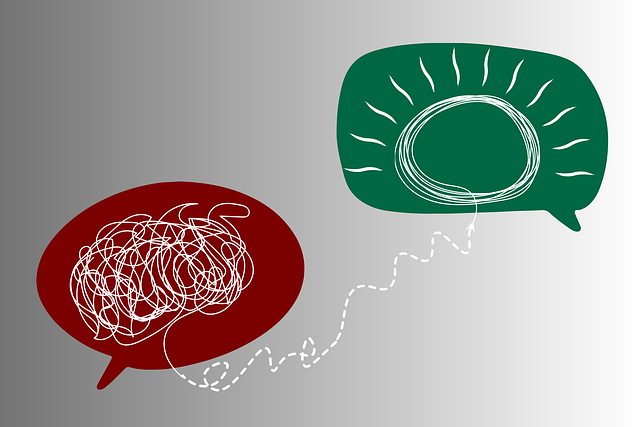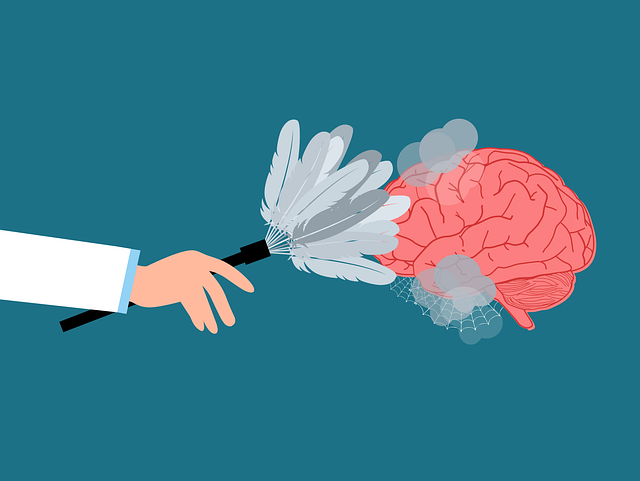In a fast-paced world where mental wellness is often overlooked, Lone Tree Domestic Violence Therapy offers a transformative solution through specialized coaching programs. These programs provide personalized guidance for various issues like work stress, conflict resolution, and depression prevention. A robust coach training curriculum equips them with communication skills, active listening, and conflict resolution expertise to create supportive environments. The therapy focuses on holistic training, self-esteem enhancement, and mental health awareness. Its success relies on multi-faceted support systems, public awareness campaigns, and integrating positive thinking exercises for healing from abuse.
Mental wellness coaching programs are gaining prominence as essential tools for promoting individual well-being, especially within communities like Lone Tree Domestic Violence Therapy. This article explores the crucial role these programs play in fostering resilience and recovery. We delve into understanding the unique needs of clients, designing comprehensive coach training curricula, and implementing support strategies for success. By examining these aspects, we aim to highlight best practices for developing effective mental wellness coaching programs tailored to diverse populations, including those seeking refuge from domestic violence.
- Understanding the Need for Mental Wellness Coaching Programs
- Designing Effective Coach Training Curricula
- Implementation and Support Strategies for Success in Lone Tree Domestic Violence Therapy
Understanding the Need for Mental Wellness Coaching Programs

In today’s fast-paced world, mental wellness is a critical aspect often overlooked amidst the hustle and bustle of daily life. The increasing rates of anxiety, depression, and stress-related disorders among individuals highlight the pressing need for accessible support systems. Mental Wellness Coaching Programs step in as a game-changer, offering tailored guidance and strategies to foster better mental health. These programs recognize that each individual has unique needs and challenges, from managing stress at work to navigating personal conflicts or even preventing depression.
Lone Tree Domestic Violence Therapy, for instance, underscores the importance of addressing specific issues like conflict resolution techniques and self-care practices. By integrating these into coaching sessions, participants learn not just to cope but also to thrive. Such programs empower individuals with tools to navigate life’s challenges, enhance their resilience, and promote overall well-being. This proactive approach is vital in creating a healthier, happier society where folks can dance through life’s twists and turns without feeling overwhelmed.
Designing Effective Coach Training Curricula

Developing a comprehensive coach training curriculum is essential for ensuring the effectiveness of mental wellness coaching programs. The design should focus on equipping coaches with practical skills and knowledge in various areas, including communication strategies, active listening, and conflict resolution techniques. By fostering strong communication skills, coaches can create safe spaces for clients to express their thoughts and feelings, promoting open dialogue and trust-building. This is particularly relevant in addressing issues like domestic violence, where effective communication can be a tool for empowerment and healing.
Incorporating modules on self-esteem improvement and mental health awareness is equally vital. Coaches play a significant role in helping individuals challenge negative thought patterns and build resilience. Through tailored exercises and role-plays, training should enable coaches to guide clients towards recognizing and shifting self-limiting beliefs, thereby enhancing overall well-being. This holistic approach, combined with an understanding of domestic violence dynamics, as offered by Lone Tree Domestic Violence Therapy, ensures that coaches are prepared to meet the diverse needs of their clients on a journey towards mental wellness.
Implementation and Support Strategies for Success in Lone Tree Domestic Violence Therapy

Implementing Lone Tree Domestic Violence Therapy requires a multi-faceted approach to ensure success and positive outcomes for those affected by this challenging issue. One key strategy is establishing robust support systems, including access to counseling services, safe havens, and community resources. Public Awareness Campaigns Development plays a crucial role in educating the public about recognizing signs of domestic violence and promoting help-seeking behaviors, thereby fostering a culture of support and intervention.
Additionally, integrating practices like Positive Thinking and Mental Wellness Journaling Exercise Guidance into the therapy process can empower individuals to develop coping mechanisms and build resilience. By providing guidance on recording thoughts, emotions, and experiences, these exercises enhance self-awareness and promote positive self-talk, which are essential components of mental wellness coaching programs. Such strategies collectively contribute to creating a supportive environment that facilitates healing and enables individuals to break free from cycles of abuse.
Mental wellness coaching programs, such as those inspired by Lone Tree Domestic Violence Therapy’s successful implementation, are vital tools in fostering holistic well-being. By designing comprehensive coach training curricula that address specific needs, we can empower individuals to navigate life’s challenges with resilience and self-care. This approach not only enhances personal growth but also contributes to a more supportive and healthy community, underscoring the importance of mental wellness coaching as a game-changer in modern therapy practices.














